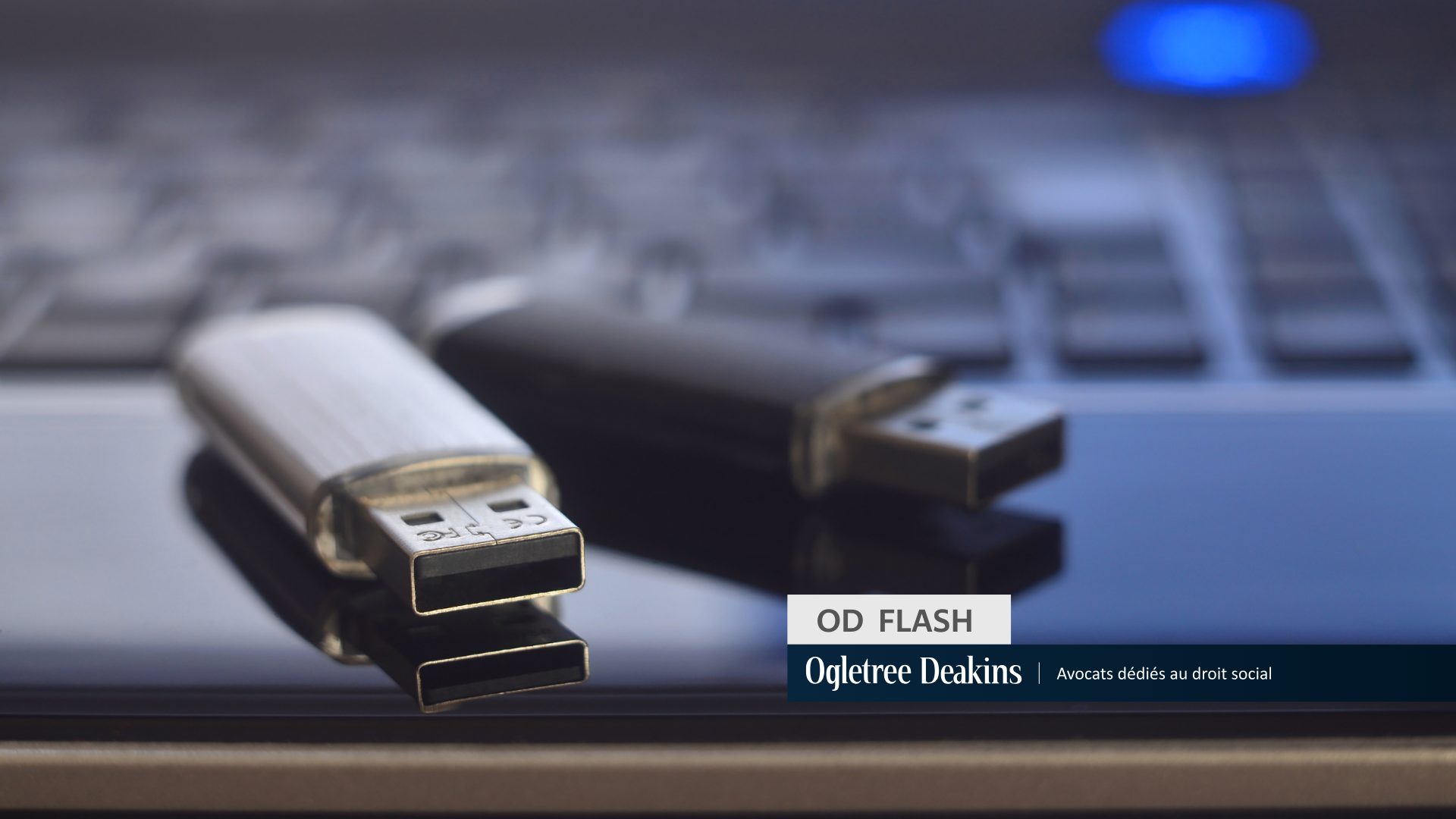French Supreme Court, Civil, Social Division, September 25, 2024, 23-13.992
According to article L. 1121-1 of the French Labor Code, no one may restrict the rights of individuals or individual and collective freedoms in a way that is not justified by the nature of the task to be performed or proportionate to the aim pursued.
However, building on the December 22nd, 2023 ruling by the French Supreme Court regarding clandestine recordings of interviews, the Cour de cassation confirms that an employee’s personal USB key, not connected to her work computer and outside her presence, may constitute an admissible evidence.
The employee was dismissed for serious misconduct. In the dismissal letter, the employer accused her of having copied and recovered particularly sensitive and strategic company data on USB keys. The employee appealed to the labor tribunal, contesting the real and serious cause of her dismissal and claiming damages for violation of her privacy.
She maintains that her dismissal was based on unlawful evidence insofar as, according to her, the employer stole the USB keys from her before having the contents analyzed without her being presented or called.
In reaching its decision, the Court of Appeal weighed up the right to evidence against the right to privacy, a principle well established by the French Supreme Court. It dismissed the employee’s claims, noting that the five keys found in the employee’s office could not be identified as personal USB keys. They were deposited on the employee’s desk, which the employer had the right to access even in her absence.
The employee appealed to the French Supreme Court, which upheld the Court of Appeal’s decision. The Court reaffirmed that the employer’s access, without the employee’s presence, to files contained on personal USB keys not connected to the work computer constitutes a violation of the employee’s privacy. However, the judges pointed out that in civil proceedings, the unlawfulness or unfairness of obtaining or producing evidence does not necessarily mean that it should be excluded from the proceedings. The judge must ensure that the evidence is indispensable to the exercise of the right to evidence, and that the violation of privacy rights is strictly proportionate to the aim pursued.
The judges noted that the employer had demonstrated that there were concrete reasons for checking these keys, insofar as other employees had testified that they had seen the employee printing numerous documents on the computer of an absent employee. In addition, the files on the key had been sorted by the expert during the inspection in the presence of a bailiff, so that no personal files had been opened. In addition, the French Supreme Court noted that the personal files had been deleted from the copy sent to the employer. As a result, the employer’s violation of the employee’s privacy was strictly proportionate to the aim pursued. The documents relating to the contents of the disputed USB keys were therefore admissible.
With this ruling, the French Supreme Court reiterates its position on unlawful evidence and continues to strictly limit its admissibility to the indispensable exercise of the right to evidence, and to the violation of rights proportionate to the aim pursued.



